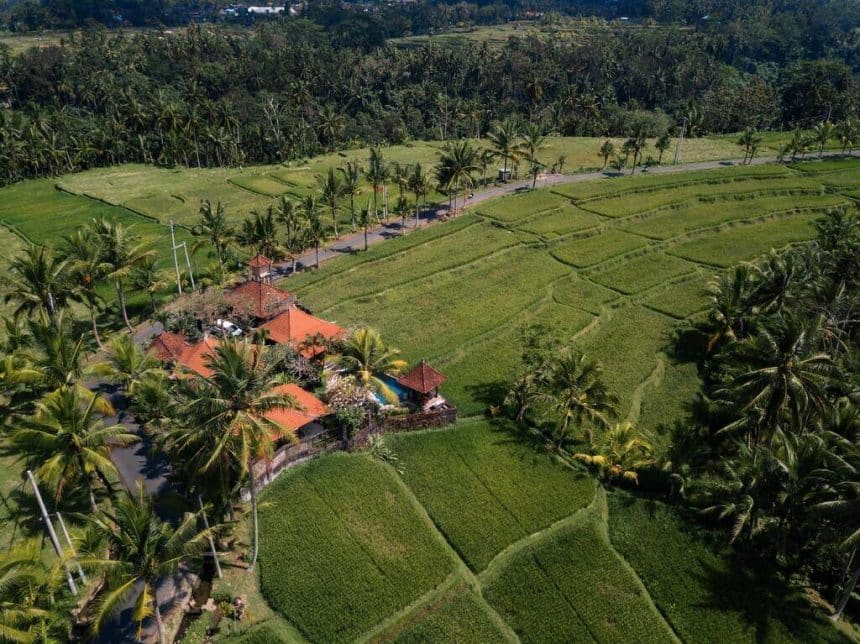Good news for foreign nationals keen on investing or settling in Indonesia as the country has eased its property ownership regulations for foreigners. Foreigners will, from now on, be able to buy property in Indonesia with just their passport and KITAS or KITAP. This step aligns with the country’s broader strategy to enhance its global competitiveness, especially when compared to neighboring countries like Singapore, Malaysia, and Thailand.
Foreigners will be able to buy property in Indonesia with just their KITAS or KITAP
Indonesia has made the property acquisition process more accessible to foreigners. Now, all that’s required for a foreigner to buy property in Indonesia is a passport or visa. This is a marked shift from the past requirement where a Limited Stay Permit Card (KITAS) and a Permanent Stay Permit Card (KITAP) were mandatory before buying a property. This move is seen as a way to encourage more foreigners to invest in the Indonesian property market.
Minimum investment requirements
However, the eased documentation doesn’t mean there are no more requirements. The Secretary General of the Ministry of Agrarian Affairs, Suyus Windayana, said: “The minimum price for landed houses is an average of Rp5 billion, while flats are at a minimum of Rp3 billion”.
The Indonesian government has set clear pricing guidelines for landed houses:
- Jakarta: Rp5 billion IDR 5 billion ($305,000)
- Banten: IDR 5 billion ($305,000)
- West Java: IDR 5 billion ($305,000)
- Central Java: IDR 5 billion ($305,000)
- East Java: IDR 5 billion ($305,000)
- Yogyakarta: IDR 5 billion ($305,000)
- Bali: IDR 5 billion ($305,000)
- West Nusa Tenggara: IDR 3 billion ($183,000)
- North Sumatra: IDR 2 billion ($122,000)
- East Kalimantan: IDR 2 billion ($122,000)
- South Sulawesi: IDR 2 billion ($122,000)
- Riau Archipelago: IDR 2 billion ($122,000)
- Other regions or provinces: IDR 1 billion ($61,000)
These are the minimum investments required for flats:
- Jakarta: IDR 3 billion ($183,000)
- Banten: IDR 2 billion ($122,000)
- West Java: IDR 2 billion ($122,000)
- Central Java: IDR 2 billion ($122,000)
- East Java: IDR 2 billion ($122,000)
- Bali: IDR 2 billion ($122,000)
- Yogyakarta: IDR 2 billion ($122,000)
- Other regions or provinces: IDR 1 billion ($61,000)
By establishing such investment requirements, the government aims to ensure a balanced and premium property market that appeals to serious foreign investors.
Requirements on land size
Foreigners looking to own a piece of Indonesia’s beautiful landscapes must be aware of certain restrictions on the land size. A single foreign family can own land up to 2,000 m2. However, Indonesia recognizes the potential benefits that foreign investors can bring. Thus, those who showcase a positive economic or social impact could be allowed larger land sizes, which would require special permission from the ministry.
Special rules for Bali
Bali, a hotspot for tourists and foreign investors, is currently under scrutiny. The government is closely studying properties that exceed the 2,000 m2 cap. The focus of this investigation is twofold: understanding the intended purpose of such large land holdings and evaluating their potential impact on the local economy.
Boosting economic competitiveness
This relaxation in property ownership rules is not an isolated initiative. It’s part of Indonesia’s strategy to strengthen its position on the global economic stage. By creating an environment conducive to foreign investments, Indonesia aims to attract more investors, potentially leading to job creation and boosting the national economy. This could give the country a competitive edge over regional economic powerhouses like Singapore, Malaysia, and Thailand.
Central to Indonesia’s vision of economic revival is the introduction of the Job Creation Law. This law, coupled with various other regulations and decrees, is designed to make property ownership for foreigners more accessible. The overarching aim is to use these regulatory changes as instruments for economic recovery, transformation, and growth.




